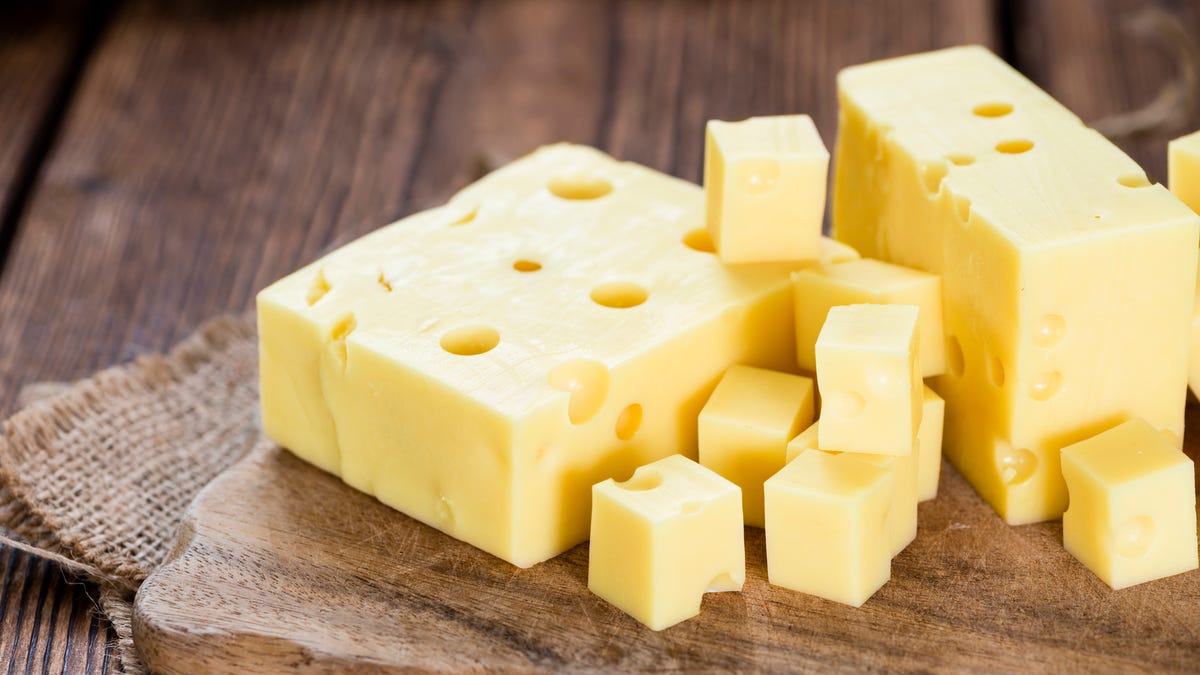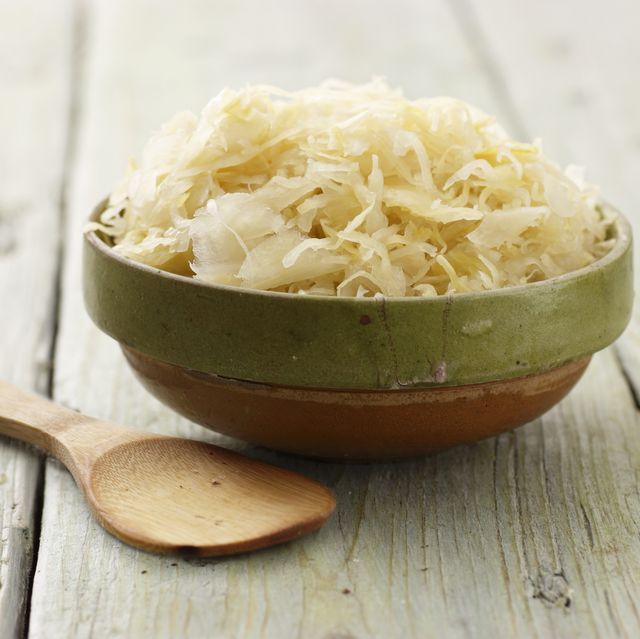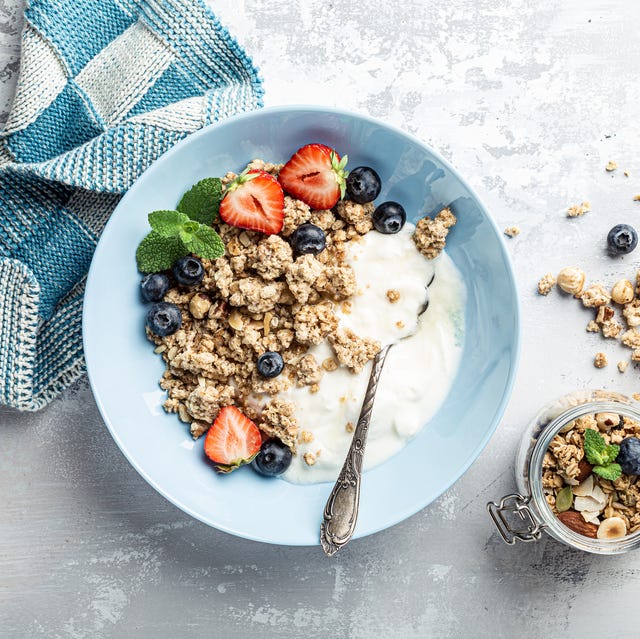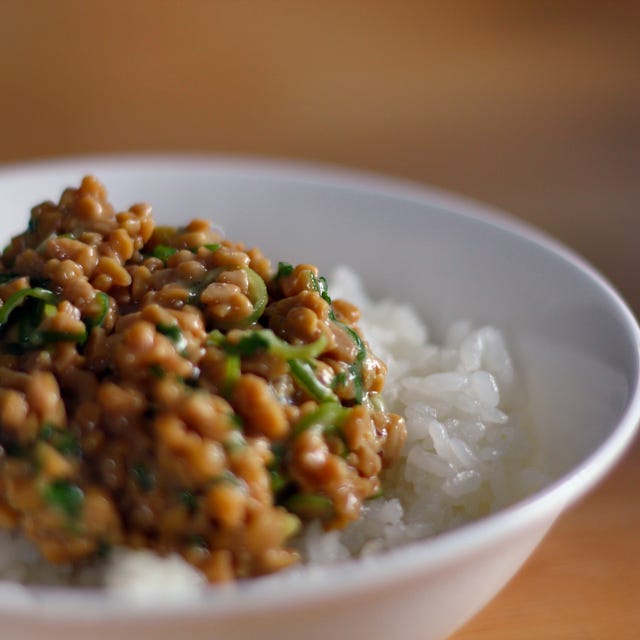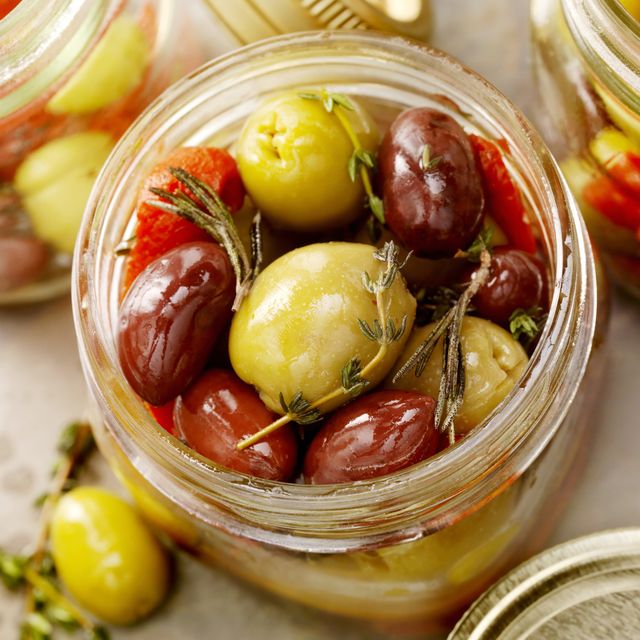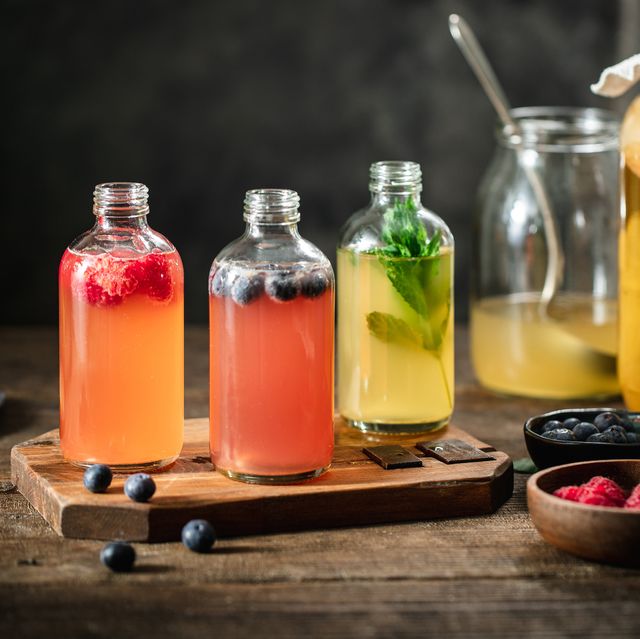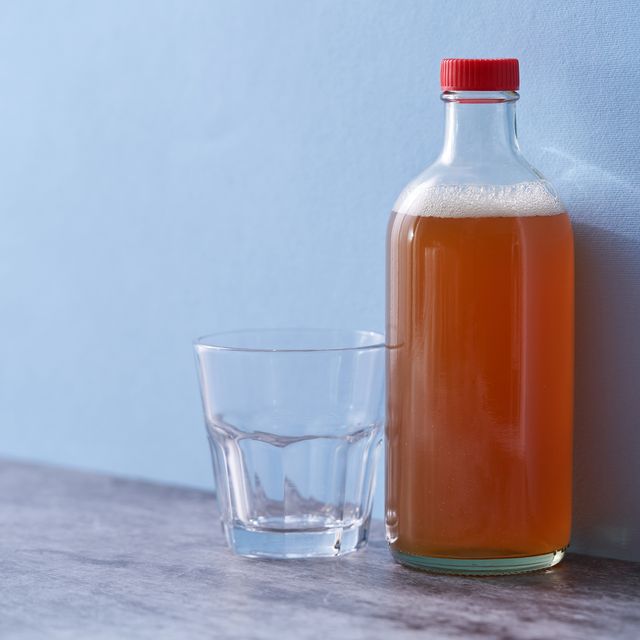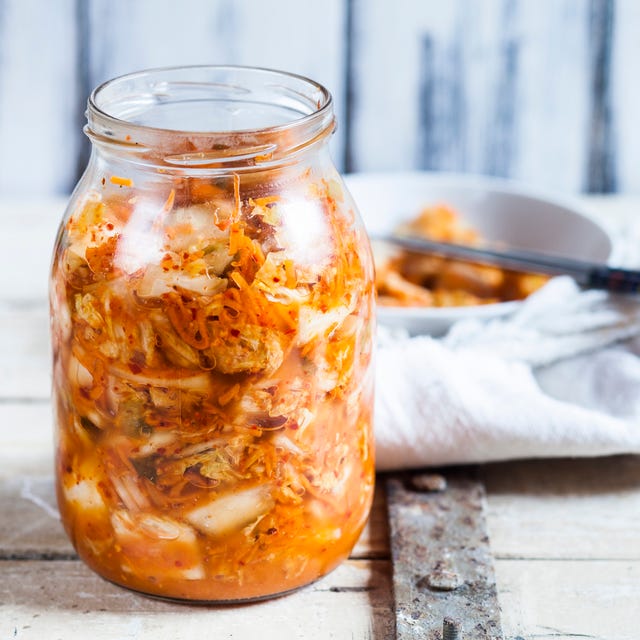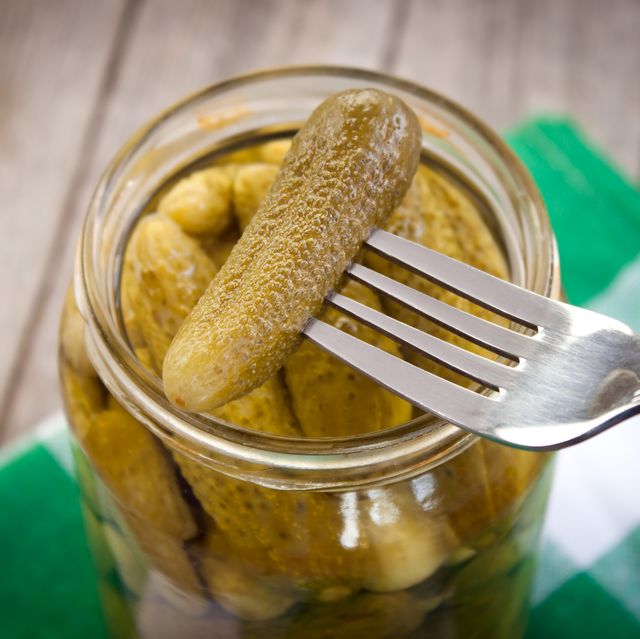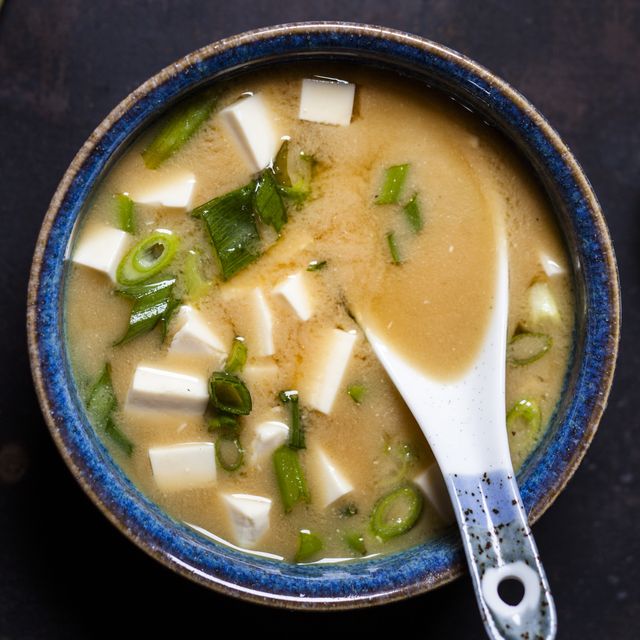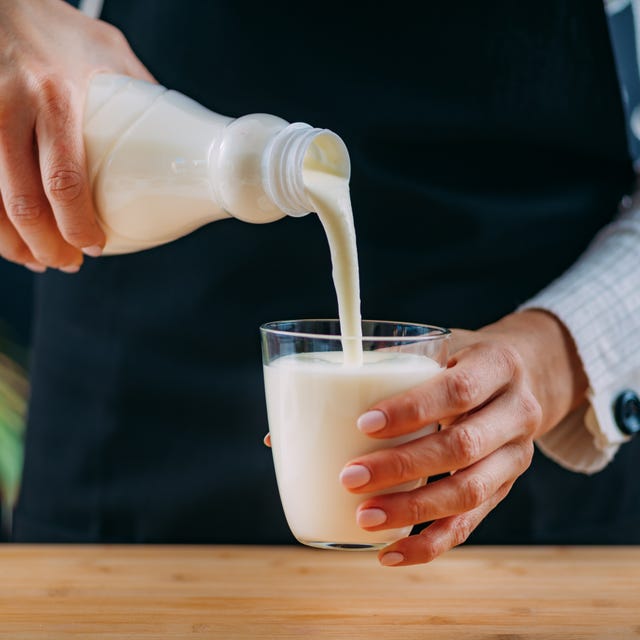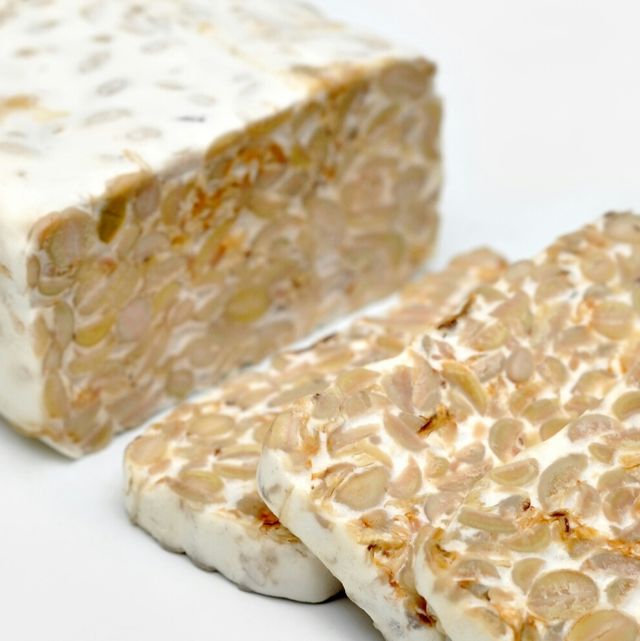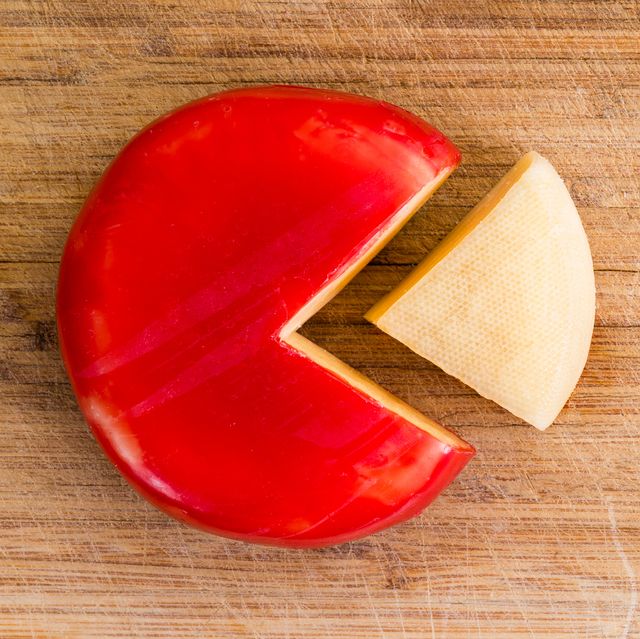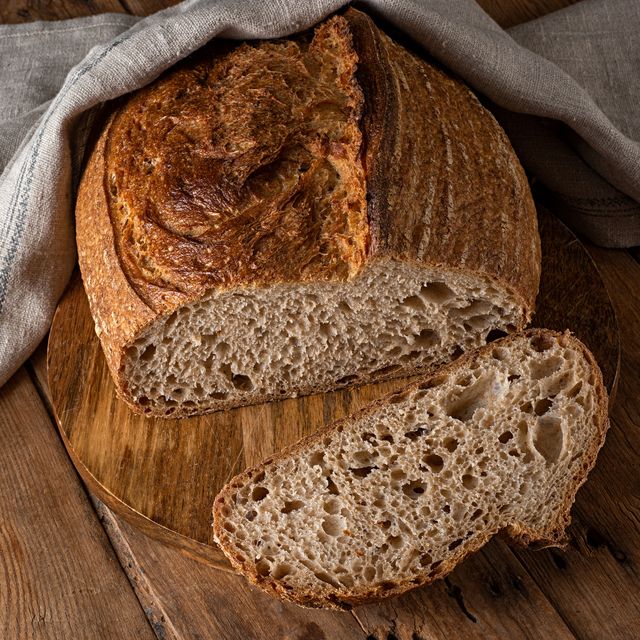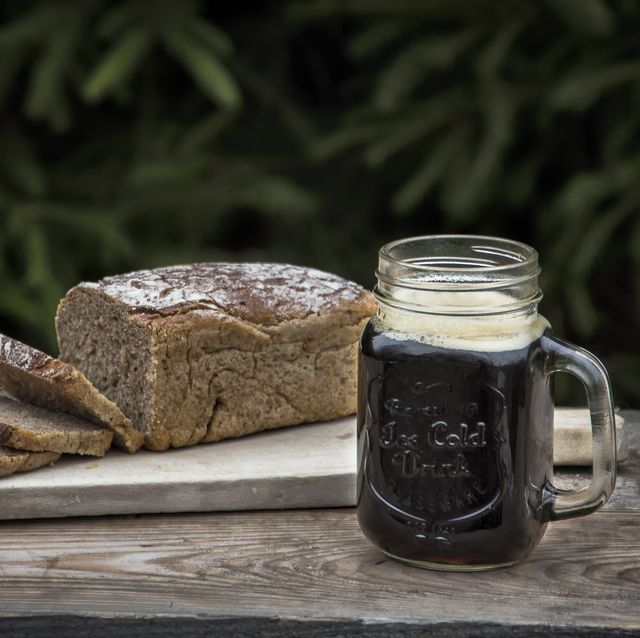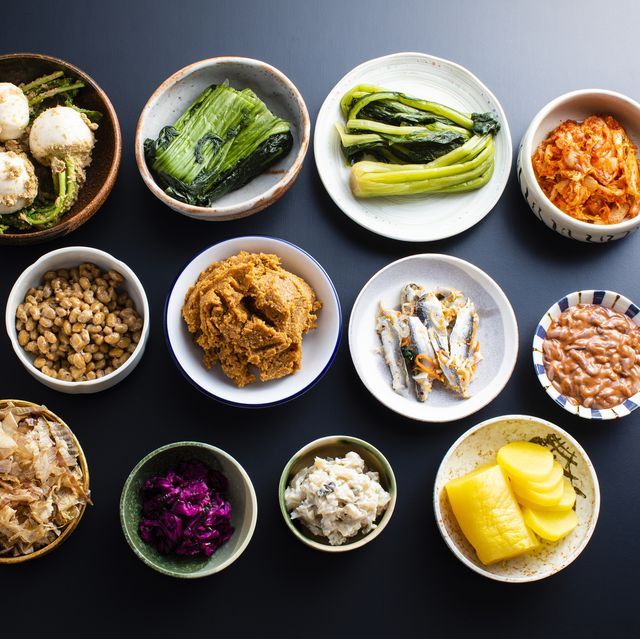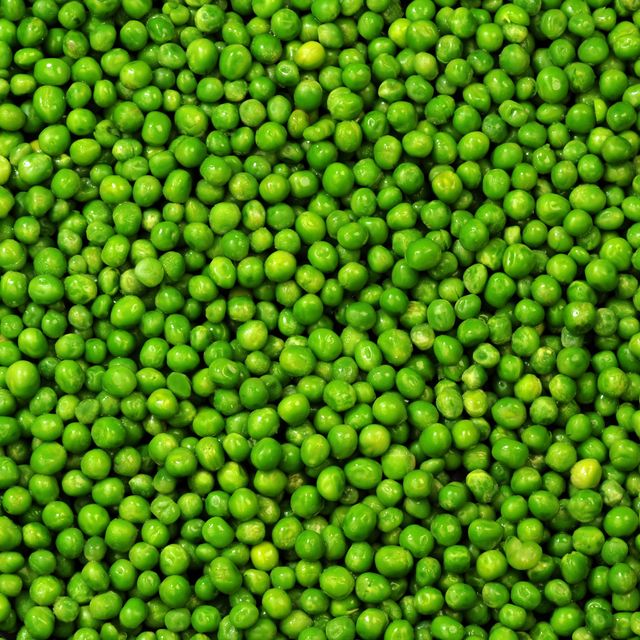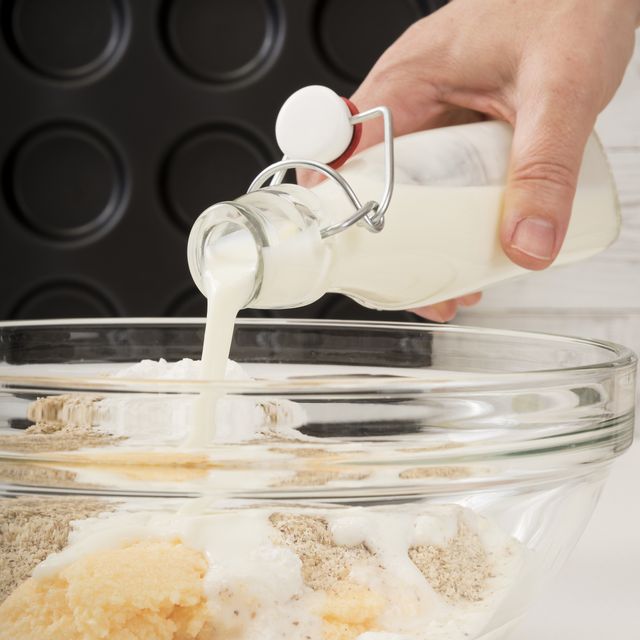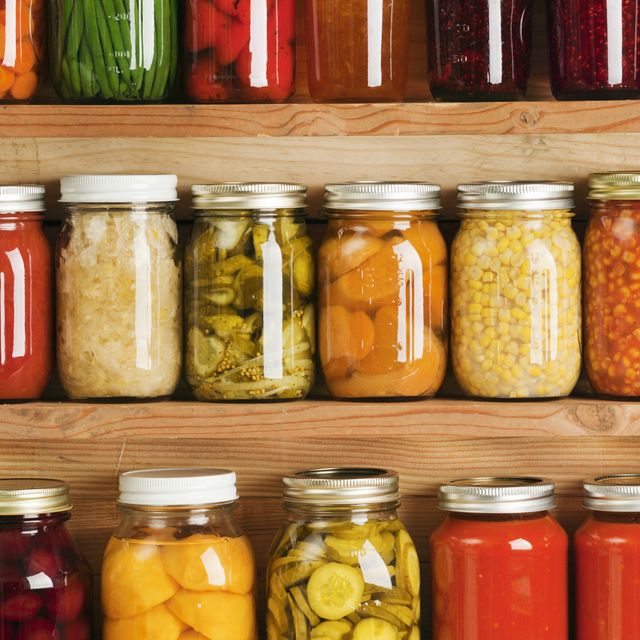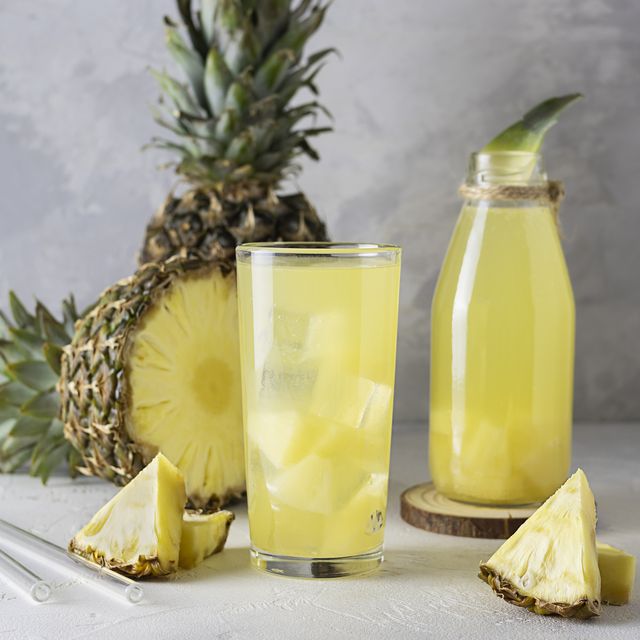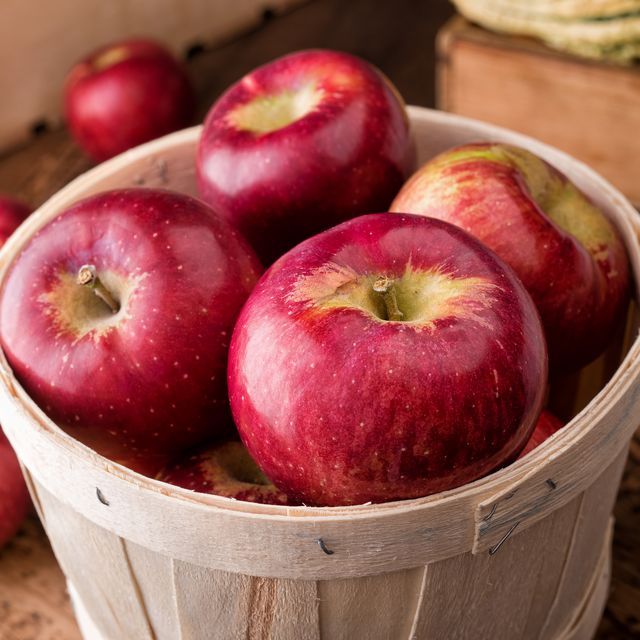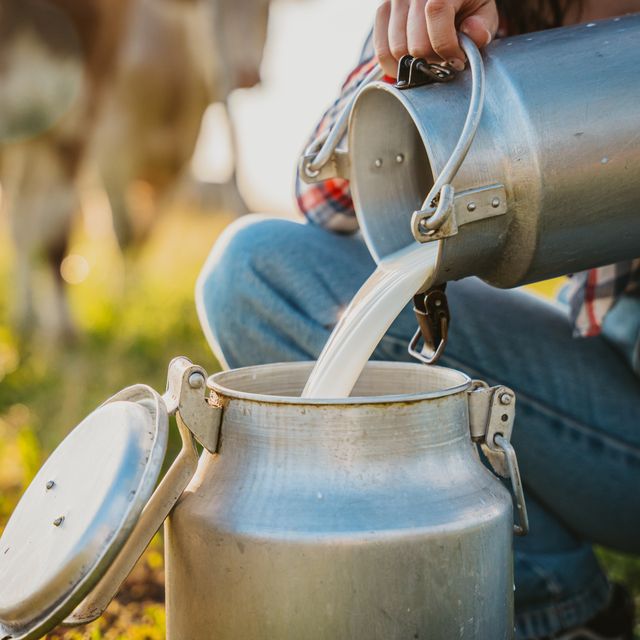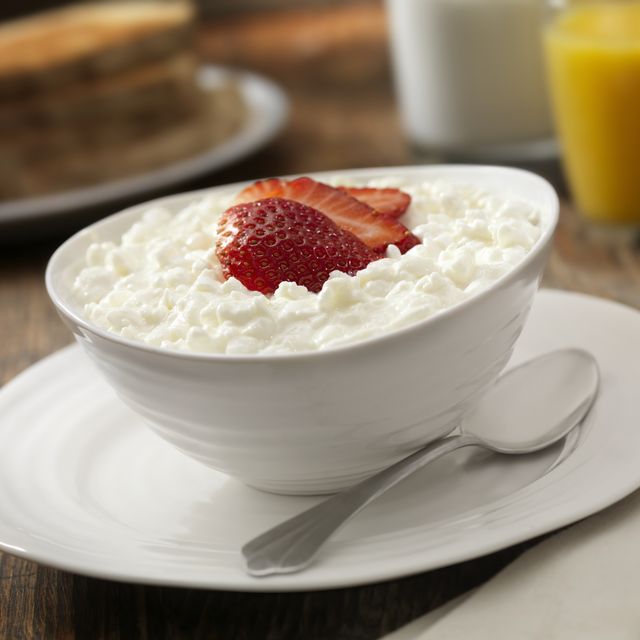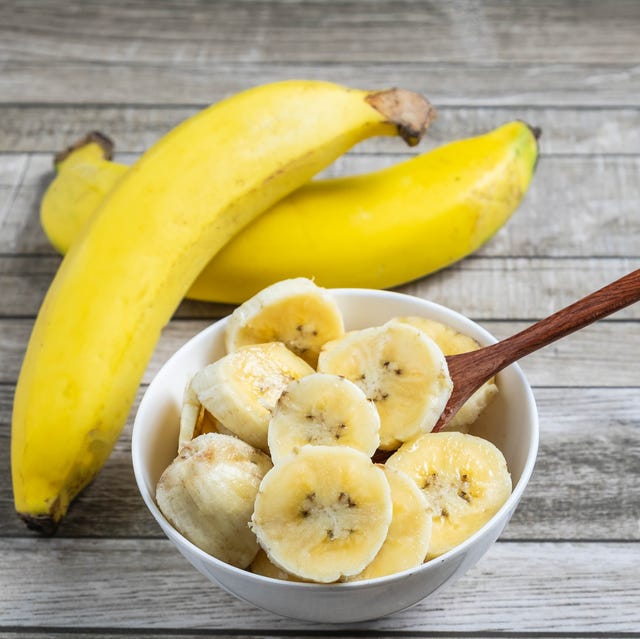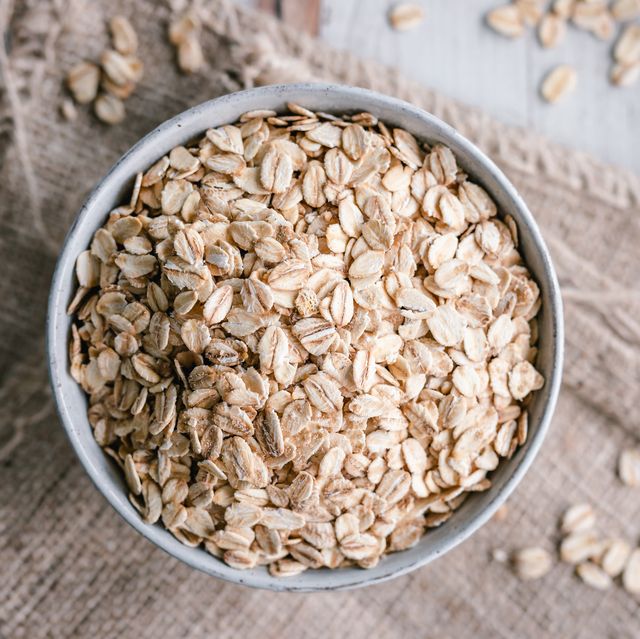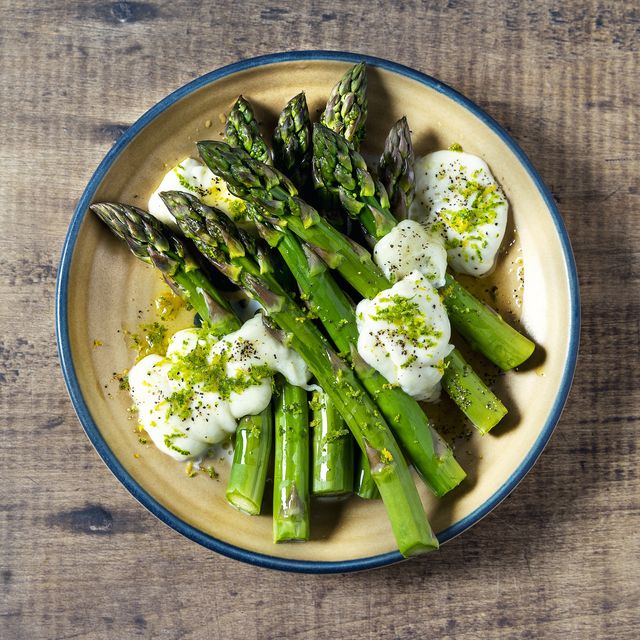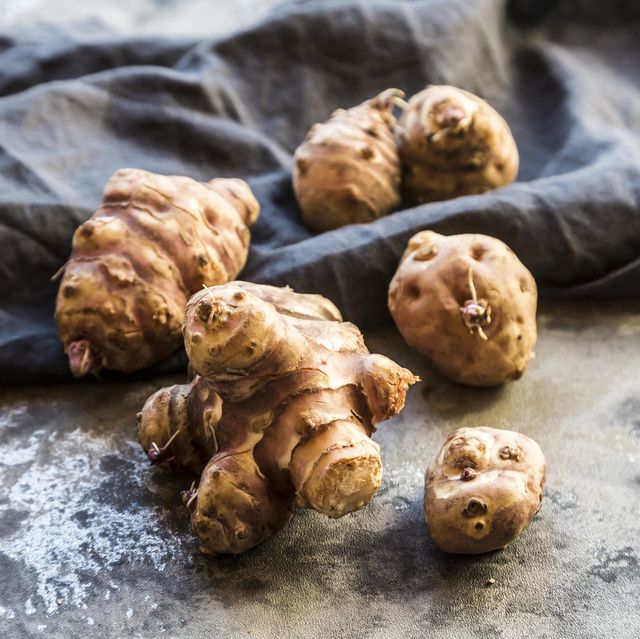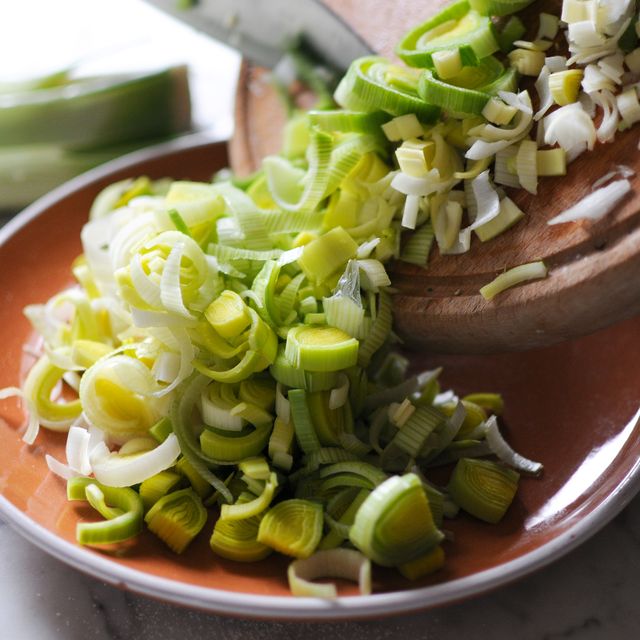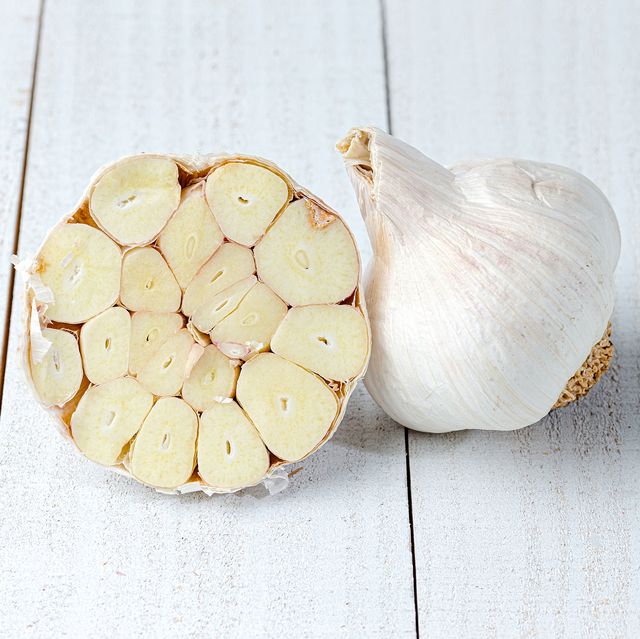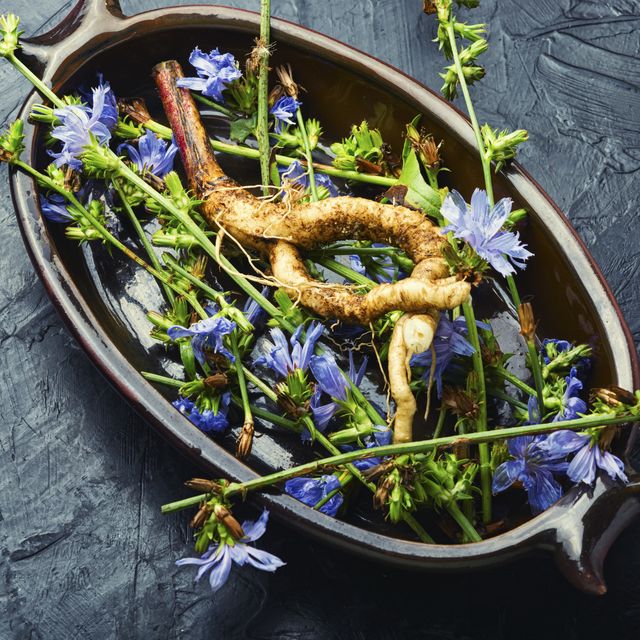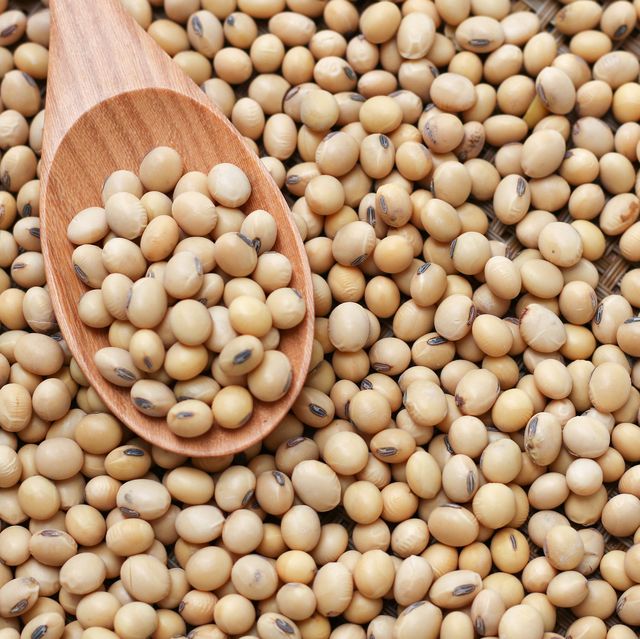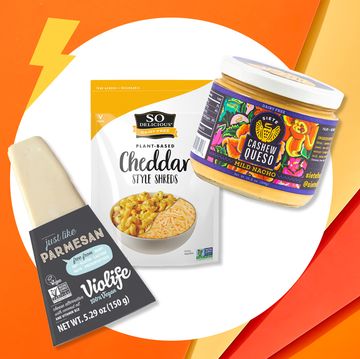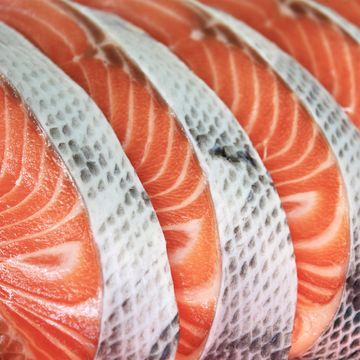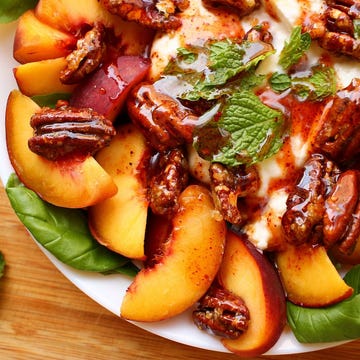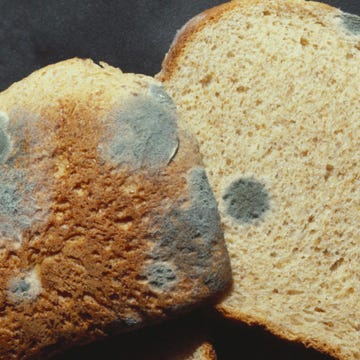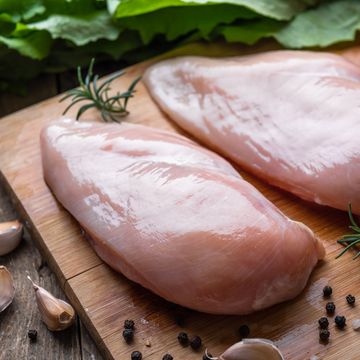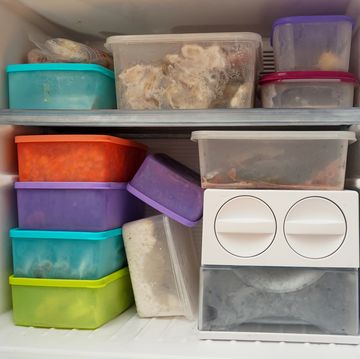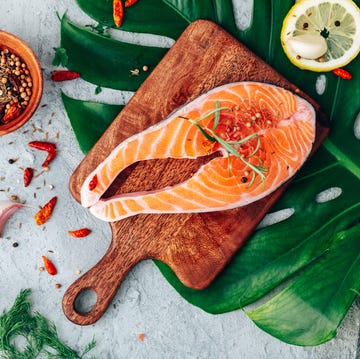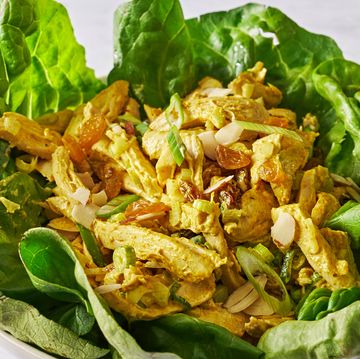You're often told to trust your gut when it comes to making a tough decision, but one move that doesn't require a second thought is the choice to look after your gut.
One of the ways your digestive system is able to handle everything it does is by playing host to a variety of bacteria, and you've probably already heard of one type: probiotics.
Probiotics are "live microorganisms that, when administered in adequate amounts, confer a health benefit on the host," according to the International Scientific Association for Probiotics and Prebiotics (ISAPP).
If that seems a little vague, it's because research on how exactly probiotics support the gut, how much or what bacteria a food should contain for you to tap into the health benefits, and how well they are able to survive digestion, is still ongoing, explains Gena Hamshaw, RD, and author of The Full Helping blog.
But that doesn't mean you can't start incorporating them into your meals, since the general consensus is that they do support a healthy gut. Studies have already shown that they could lead to better digestion, more energy, clearer skin, and even a stronger immune system. Not bad, eh?
While you can get these little digestive-boosting bacteria from supplements, there are also plenty of foods that contain naturally occurring probiotics. The heavy hitter in this stadium? Fermented foods.
"Fermented foods have been part of cuisines from around the world for centuries," Hamshaw says. "Many of them are very wholesome and rich in nutrients. This includes fiber, which is associated with digestive health. And the live microorganisms they contain may act as probiotics." Fermented foods have gone through a process where bacteria has converted the food's carbs into alcohol or organic acids.
There's no particular daily recommended amount of probiotics, Hamshaw says, but she suggests "doubling down on fermented foods during or after time periods in which normal intestinal microbiota have been disrupted. This could include after a round of antibiotics or a period of traveler's diarrhea."
Luckily, there are a ton of different foods that can help you get your good bacteria fix. Here are some of the best probiotic-rich foods you can add to your diet:
1. Sauerkraut
Swap ketchup and mustard for sauerkraut at your next cookout. Made from fermented cabbage, this dish is great as a topping for hotdogs and as an accompaniment to barbecue.
One shopping tip from Hamshaw is to steer clear of the canned food aisles and look for sauerkraut and other fermented foods in the refrigerated section. "Shelf-stable sauerkraut or pickled vegetables may have undergone processes to extend shelf life that kill their live organisms," she explains.
2. Yogurt
Yogurt is likely the first food that you think of when you hear the word "probiotics," and to tap into its full potential, look for brands that say "live active cultures" on the label. While you're looking at that label, Hamshaw also recommends that you check for added sweeteners if you want to avoid extra sugar.
3. Natto
This fermented soybean dish from Japan, often served for breakfast, is known for its distinct taste and particular smell, and it packs a nutritional punch. The bacteria used in the fermenting process was found to contain a variety of vitamins, enzymes, and amino acids in a Journal of Bacteriology study.
4. Olives
Whether you eat them as part of a charcuterie board or as a martini garnish, olives are a good source of probiotic bacteria. Plus, Italian researchers found that Sicilian green olives can almost act like an antioxidant when eaten regularly, thus reducing inflammation.
5. Kombucha
This fermented tea is packed with beneficial bacteria and B vitamins—and it aids digestion, so it can help you debloat, too. If you're not into the strong, briny taste, kombucha is just one of several probiotic drinks out there on the market.
6. Apple cider vinegar
ACV has a lot of purported health benefits (some legit, some not so much), but it really does contain probiotics. Just don't drink it in straight shots, because it's so acidic—it's better paired with other foods, say, in a salad dressing.
7. Kimchi
Pile this condiment on all your sandwiches and rice dishes; it's made from cabbage fermented with strains of beneficial lactic acid bacteria, says Jackie Newgent, RD. As an added bonus, many fermented vegetables have a longer shelf life than fresh ones.
8. Pickles
Pickles are another fermented food packed with probiotics (and they're more palatable than sauerkraut, if that's not your thing). Just watch out for the sodium.
9. Miso
This fermented soybean-based product is rich in probiotics because it's made by mixing cooked soybeans with a starter culture (bacteria deliberately used to start fermentation), says Newgent. So go ahead, order that miso soup the next time you go out for sushi.
10. Kefir
If you're a big fan of yogurt, but want to enjoy something more travel-friendly, try probiotic-rich kefir (an Icelandic yogurt drink), says Newgent. The tart liquid is a great way to add more protein to your morning smoothie.
11. Tempeh
The vegetarian meat alternative is actually fermented soy—making it a sneaky source of probiotics. Plus, it has a whopping 20 grams of protein (yes, you read that right) per serving.
12. Fermented cheeses
Some cheeses, such as Gouda, cheddar, and Swiss, are made with lactic acid bacteria, says Newgent. While the probiotic content does vary, it can't hurt to ask the person behind the counter at your local cheese shop to point you in the direction of a great Gouda.
13. Sourdough
"Sourdough is made by fermenting flour with wild yeast, which produces lactic acid, giving the bread its signature flavor," explains Janelle Connell, RDN, senior translational science nutritionist at Viome. "This fermentation process helps produce enzymes that break down proteins, such as gluten, often making sourdough easier to digest than traditional bread." Connell adds that, according to research published in Nutrition, the bread's fermentation process also helps the body more easily absorb the minerals inside, like magnesium, iron, and zinc.
14. Kvass
Kvass is an eastern European fermented beverage, typically made from sourdough rye bread, but can also be made from fermenting berries, fruits, herbs, vegetables, or honey, explains Connell. Due to its fermentation process, it contains a small amount of alcohol, similar to kombucha. Mahmoud Ghannoum, PhD, leading microbiome researcher and co-founder of BIOHM Health, also recommends giving Kvass a try. "It is rich in probiotics such as Lactobacillus brevis and Lactobacillus plantarum," he says. "It's also a good source of vitamins and minerals, including vitamin B."
15. Koji
Koji is technically a type of fungus used for various culinary feats, including in Japanese cuisine to ferment rice, soybeans, and other grains, explains Ghannoum. It may sound a little out there, but it's a great source of probiotics, such as Aspergillus oryzae, Ghannoum adds.
16. Green peas
Green peas have been found to contain a potent probiotic named Leuconostoc mesenteroides, explains Ghannoum. They're a versatile vegetable you can easily add to your salads, pastas, and omelettes for a belly-loving boost.
17. Buttermilk
Who knew your favorite pancakes and biscuits could do some good for your gut? Buttermilk is a fermented dairy product rich in probiotics like Lactococcus lactis and Streptococcus thermophilus, says Ghannoum. "It's made by adding bacteria to low-fat or skim milk, which produces lactic acid and gives buttermilk its tangy taste," he adds.
18. Pickled beets, carrots, or other veggies
Pickled beets, carrots, and radishes contain probiotic strains such as Lactobacillus acidophilus and Lactobacillus plantarum, explains Ghannoum. "They are also a good source of fiber, vitamins, and minerals," he adds. If you're not a fan of those veggies, Connell says you can pickle just about any vegetable you like.
"All you need is a mason jar with a lid, salt, and water," she explains. "This process is called wild fermentation because it utilizes the naturally occurring bacteria on the vegetables and in the environment." After the veggies are covered in the salt solution, it takes around four to 10 days for them to ferment, Connell adds.
19. Tepache
Tepache is a fermented beverage originating from Mexico that's made from the peel and the rind of pineapples and often seasoned with cinnamon, says Connell. "The fermentation process not only provides probiotics that support healthy digestion, but also provides vitamins and minerals," she adds. Plus, the drink is super refreshing.
20. Apples
A 2019 study published in Frontiers in Microbiology found that organic apples—core included—contain about 100 million diverse bacteria "which might healthily interact with the gut microbiome," says Ghannoum.
21. Raw milk
"Any raw milk—be it sheep's, goat's, or cow's milk—and aged cheeses are high in probiotics," says Ghannoum. He adds that most pasteurized dairy products lack healthy bacteria.
22. Cottage cheese
Certain brands of cottage cheese are made with live cultures to boost their gut-supporting benefits. Good Culture offers probiotic-rich, low-fat whole milk and double cream options.
23. Bananas
Bananas aren't a probiotic, but a prebiotic food, which Mastaneh Sharafi, PhD, RD, vice president of scientific affairs at Ritual, says are just as important to maintaining a healthy gut. "Prebiotics are not living organisms—they're non-digestible food ingredients that strategically support the good bacteria that already exist in your gut," she explains. They essentially act as food for gut bacteria, which creates an ideal environment for your body to grow and diversify its own probiotics.
24. Oats
Oats are another prebiotic food Sharafi recommends incorporating into your diet. "Prebiotics are typically found in complex carbohydrates," she explains. "Complex carbs are difficult for our digestive systems to process, and arrive largely intact to the colon, where they act as nutrients for the beneficial bacteria that reside there."
25. Asparagus
Asparagus is a prebiotic also high in nutrients like inulin fiber and antioxidants, says Sharafi. It's an easy side to roast or stir fry and pair with dinner too.
26. Jerusalem artichoke
Jerusalem artichokes, also called sunchokes, are a prebiotic food rich in inulin fiber, which is undigestible and reaches the colon to feed and support a flourishing gut microbiome, Sharafi says.
27. Leeks
Leeks are a prebiotic food that research shows may help change the composition of gut microbiota when consumed with other prebiotic foods among a balanced, healthy diet. The onion-y veggie adds a pungent flavor to soups, scrambles, and more.
28. Garlic
Garlic is a prebiotic that research has shown can increase the growth of the probiotic L. acidophilus, so don't be afraid to add a few extra cloves to your next dinner!
29. Chicory root
Chicory is a bitter root that's not typically served up in entree form, but you can find it as a supplement or tea. (It's actually often ground up and served like coffee.) The root is an inulin-rich prebiotic and also contains fibers pectin, cellulose, and hemicellulose that have been found to help lower cholesterol.
30. Soybeans
Sharafi says soybeans are a protein-rich prebiotic to keep on rotation. They're mainstays in a plant-based diet and they pack the prebiotic punch that many soy milks don't, since much of it gets drained away in the bean-soaking, milk-making process, research says.
